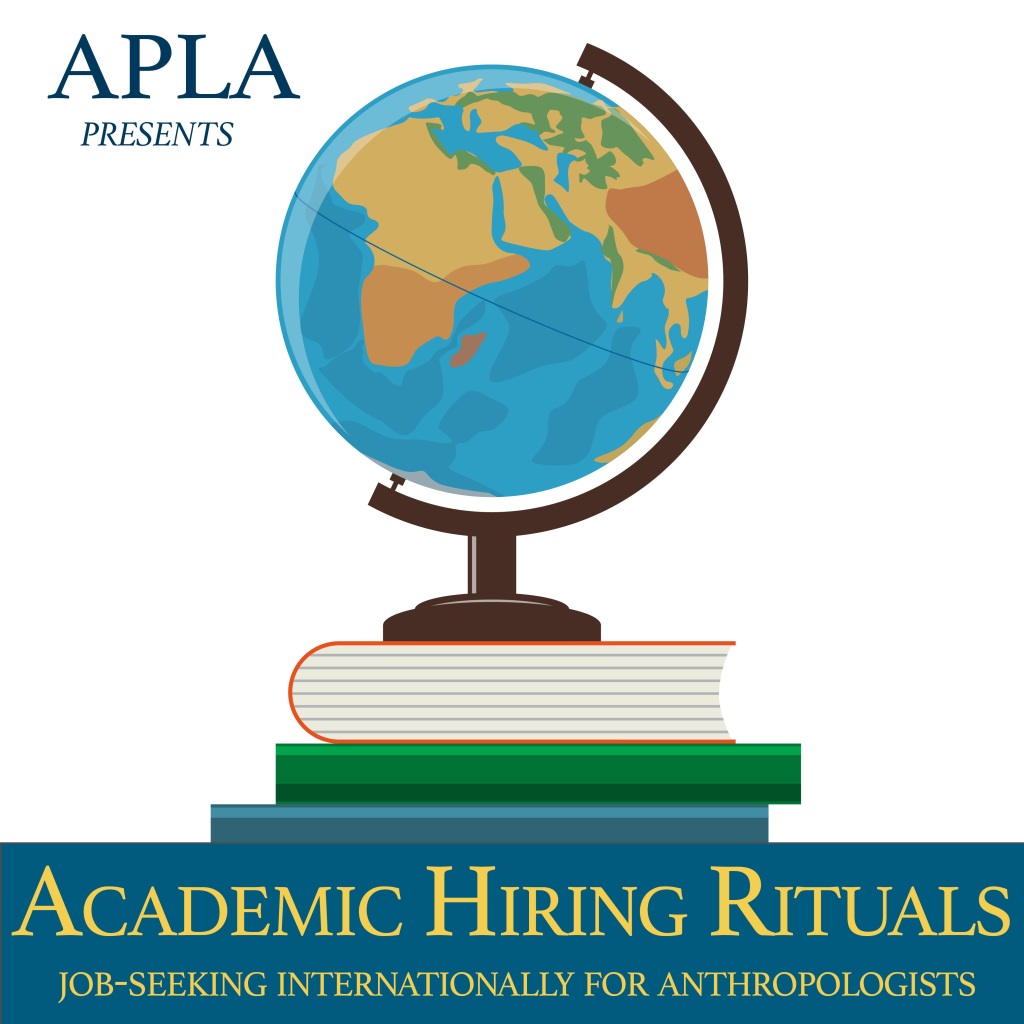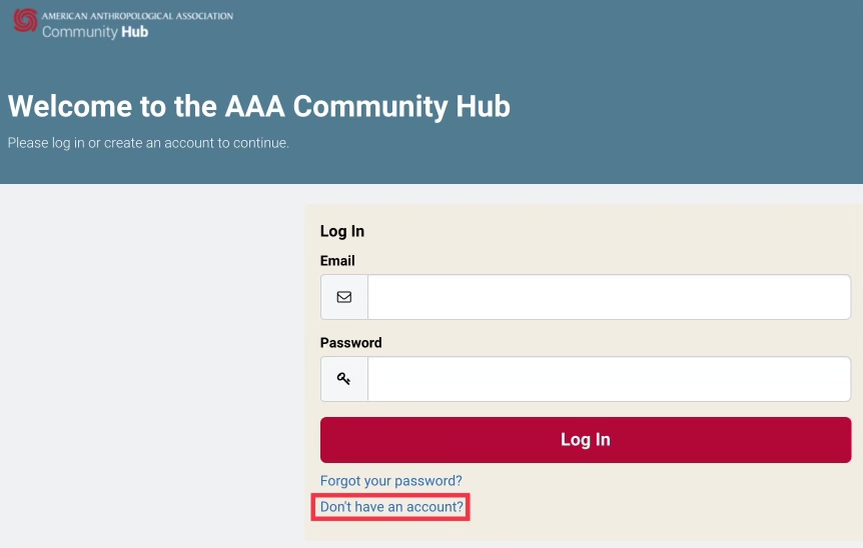Presented by the Association for Political and Legal Anthropology

This sixth episode of Hiring Rituals focuses on hiring practices in Australia. We turned to colleagues who elucidate not only the writing of job ads and composition of committees, but also the social processes and the values that bring academic hiring to life. We also learned about something that’s especially important for academic hiring in Australia: the Selection Criteria. Our guests explain what these are, how to navigate answering them, and the role they play at every stage of the hiring process. The full transcript is also available.
Distributed in collaboration with the American Anthropological Association
Australia Hiring Podcast Chapters
You may listen to the full podcast above or on the Apple podcast services. If you only want to listen to specific chapters, you can do so below.
Chapter One: Introduction
Chapter Two: The Job Ad
Chapter 3: The Application
Chapter 4: The Long List
Chapter 5: The Short List
Chapter 6: The Job Talk and Interview
Chapter 7: The Decision
Chapter 8: Negotiating the Job Offer
APLA Precariat Fund
We ask people who find listening to the podcast useful to contribute to an APLA fund to help precariat academics with emergency health care and moving costs. The money accumulated in this mutual aid fund will be distributed on a first-come, first-serve basis every summer. We are asking that you help support fellow scholars in need of financial help as they move between non-tenure track jobs, or deal with unexpected health costs. Your donations will help form a mutual aid society moderated by APLA and be greatly appreciated. Directions and a link are below.
Guests
Professor Kate Henne is the Director of RegNet, the Australia National University’s School of Regulation and Global Governance, and leads the Justice and Technoscience Lab (JusTech). She is also a Chief Investigator on the ANU Humanising Machine Intelligence Grand Challenge project and a member of the ANU Gender Institute. Before commencing as RegNet’s Director, she held a Canada Research Chair at the University of Waterloo, where she was also a Fellow of the Balsillie School of International Affairs. Her research is concerned with how science and technology influence regulation and governance, focusing on the implications for health, public safety, and well-being. Her publications span issues of automated decision-making, biomedicalization, data governance, gender-based regulation, human enhancement, policing technologies, and sport. Her work has been funded by the Australian Research Council, Canada Foundation for Innovation, Consortium of Humanities Centers and Institutes, National Endowment for the Humanities, National Science Foundation, Olympic Studies Centre, Ontario Research Fund, Social Sciences and Humanities Research Council, and World Anti-Doping Agency, as well as by government partners.
Professor Heather A. Horst is the Director of the Institute for Culture and Society at Western Sydney University. A sociocultural anthropologist by training, she researches material culture and the mediation of social relations through digital media and technology. Her books focused upon these themes include The Cell Phone: An Anthropology of Communication (Horst and Miller, 2006); Hanging Around, Messing Around and Geeking Out: Kids Living and Learning with New Media (Ito, et. Al 2010); Digital Anthropology (Horst and Miller, eds. 2012); Digital Ethnography: Principles and Practices (Pink, Horst, et. Al. 2015); The Routledge Companion to Digital Ethnography (Hjorth, Horst, Galloway and Bell, Eds. 2016); The Moral Economy of Mobile Phones: Pacific Island Perspectives (Foster and Horst, eds. 2018) and Location Technologies in International Context (Wilken, Goggin and Horst, eds. 2019). Her current research, part of an Australia Research Council’s Linkage Project, led by Dr. Denis Crowdy with the Wontok Foundation and Further Arts Vanuatu, examines the circulation of music in Melanesia through mobile technologies. She is also developing new work examining the Fijian fashion system as well as Automated Decision Making.
Associate Professor Yasmine Musharbash is Senior Lecturer and Head of Discipline, Anthropology in the College of Arts and Social Sciences at Australia National University. Ethnographically, her work is located in central Australia and mostly centered on Yuendumu, an Aboriginal community about three hours northwest of Alice Springs. She has been conducting fieldwork there annually since 1994, originally focusing on everyday life as it unfolds in Warlpiri homes and country.
Matt Tomlinson is Associate Professor in the School of Culture, History & Language at Australia National University. Matt is a sociocultural anthropologist who studies the relationship between language, politics, and religious ritual. At the heart of his work is the question of how people organize themselves to communicate with “extrahuman” figures (including God, ancestors, and spirits) and what social effects such ritual communication has. After completing a PhD in Anthropology at the University of Pennsylvania in 2002, he have taught at Bowdoin College, Monash University, the University of Oslo, and ANU (since 2012).
Lisa L. Wynn is Professor in the School of Social Sciences (Discipline of Anthropology) at Macquarie University in Sydney, Australia. She received her PhD in 2003 from Princeton University’s Anthropology Department, then subsequently held two postdoctoral research positions at Princeton’s Office of Population Research and Center for Health and Wellbeing. Her research has been supported by grants from the Social Science Research Council, the Australian government’s Office of Learning and Teaching, and the Australian Research Council, and she has won both the Vice Chancellor’s Teaching Excellence Award from Macquarie University and a national teaching award from the Australian Office of Learning and Teaching. She has conducted fieldwork in Egypt since 1998, with a focus on tourism, gender, reproductive health technologies, sexuality, and religion. She also conducts research in Australia on ethics review bureaucracies and on lay understandings of infectious disease. She has served on the editorial boards of Maternal and Child Health Journal and Contraception, and is Associate Editor of the journal American Ethnologist starting in 2022. She has served as President of the Australian Anthropological Society (2020) and on the AAS Executive Committee (2018-2021). She is the author of 2 monographs, the co-editor of 3 edited books, and has published several dozen book chapters and journal articles.
Production Staff
This podcast was created by Elisabetta Carosi (sound editor); Jennifer Curtis (editor); Josh Babcock (production assistant and narrator); and Ilana Gershon (producer).
How to Donate to the Precariat Fund
AAA members, follow this link and login to your AAA account to donate:
https://my.americananthro.org/donatenow?pid=a1B8W00000D0r5HUAR
To ensure the donation is directed to the Precariat Fund, complete the final item on the donation page, “About Your Donation.”
Select the “Tribute Type” toggle menu and select “In Honor Of.” Then enter as the first name: “APLA Precariat” and last name “Fund.”

If you are not a member of AAA, you may also use this link, but rather than logging in, choose the “Don’t have an account?” link below the login button.

You will be directed to a page that asks you to supply your name and email address, and to create a password. Once you have logged in or completed the non-member form, below, you’ll reach the APLA donation page.

